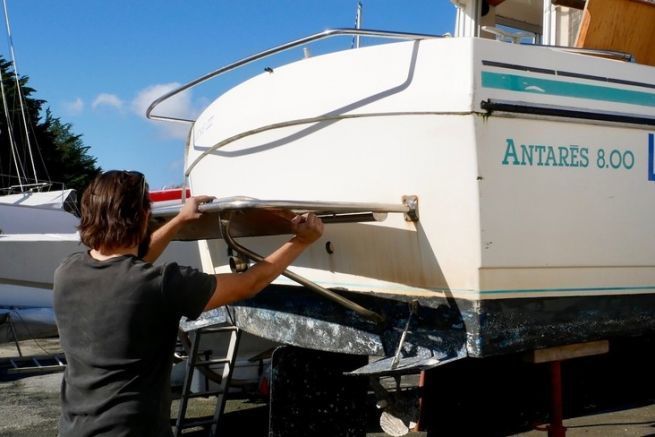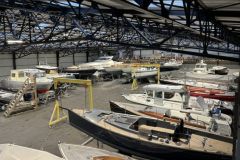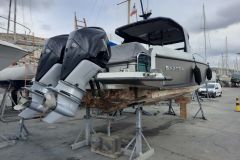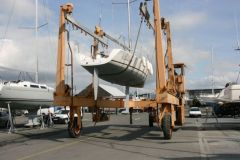When it comes to bringing an old boat back to life, there is no lack of energy, at least at the beginning! This can lead to over-enthusiasm that can be detrimental later on. Most do-it-yourselfers have references from the building industry, and not all of them can be transposed to the nautical industry, otherwise they will be seriously disappointed. Here are some mistakes to avoid.
A too efficient tool!
It is normal and desirable to remove old, flaking paint to make a clean sweep, but a suitable tool should be used for this. A quality orbital sander with a coarse abrasive is best. Do not use a grinder. This tool is very efficient, but it creates a dull surface that will require a lot of work afterwards!
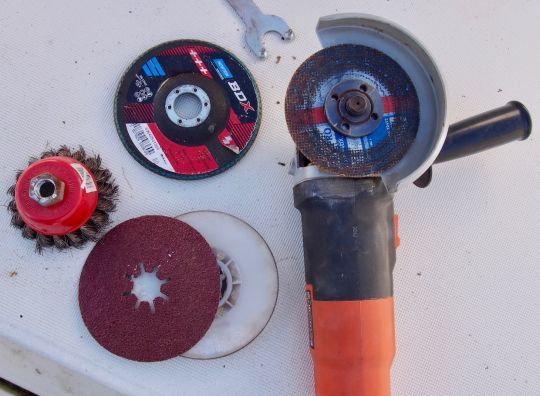
Protect the workspace
In an effort to remove anything unnecessary, it may be tempting to cut off anything that sticks out, rather than waste time disassembling it. Be aware that the glowing metal particles thrown up by the grinder will permanently mark paint and gelcoat. Only phosphoric acid will remove these rust stains. Take care to protect your work area if you have to grind or cut steel.
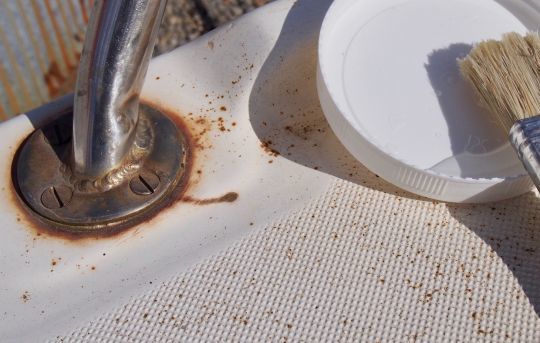
Marine grade materials
Paints, sealants, screws... building materials are less expensive than their nautical counterparts and much easier to obtain. Buying from the local hardware store is a false economy that may end up costing you a lot of money. A2 stainless steel is not "marine" quality, nor is "exterior" plywood, and as for paints, you will appreciate that they last a little after so many hours of sanding!
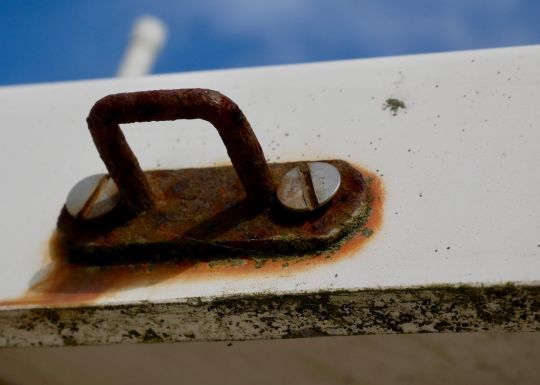
Pro" quality tools
The tool doesn't do everything, but it does help! Do not fail to equip yourself seriously, even if it means reselling this equipment at the end of your work. Renting can also be a way to get professional equipment for a reasonable budget. Take the time to learn how to use these tools, but also to sharpen those that need to be sharpened. Efficiency and pleasure are at this price!
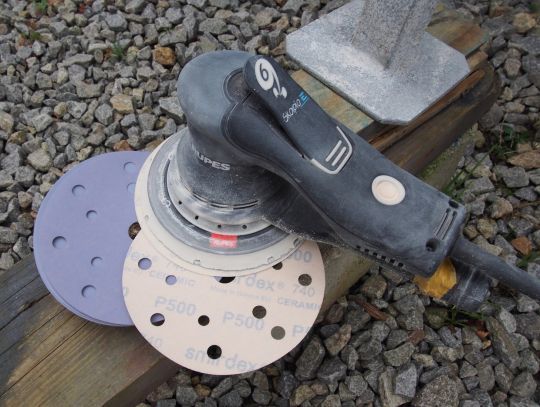
Think safety
Hours spent in the emergency room don't get the job done! Don't neglect safety equipment and personal protective equipment. A rolling scaffold is much safer than a ladder set against a plank. Also, masks, coveralls, gloves and goggles are not accessories! Dust and other fumes from marine products are rarely harmless.
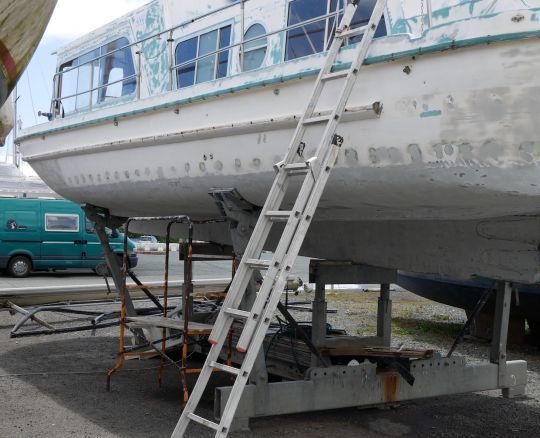
Not everywhere at once!
Carried away by the enthusiasm of the beginning, it is easy to be tempted to attack the construction site head on. Even if it is not always technically logical, it is in the amateur's interest to work in stages, for example by renovating one cabin at a time, rather than all the woodwork on the boat. This will preserve pleasant spaces and avoid squandering motivation, which is a precious commodity.
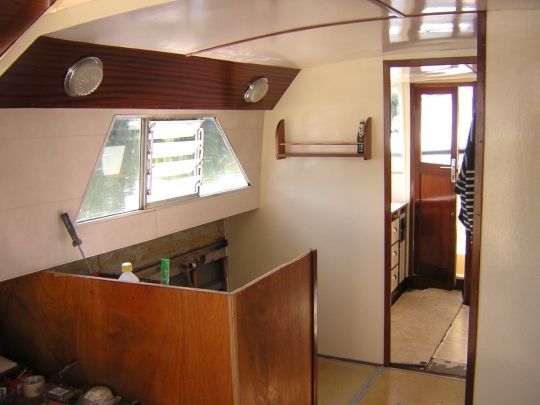
When you buy an old boat, it's natural to have ideas about how to modernize it or adapt it to your needs. If possible, take the time to sail the boat to test your plans against reality. Don't change anything important without thinking it through. Who knows, the architect may have done it right?
